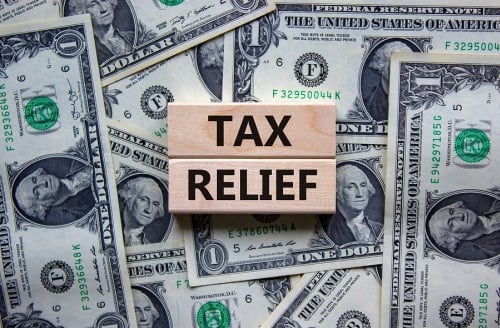The Internal Revenue Service (IRS) has made a significant announcement regarding back taxes from tax years 2020 or 2021. In response to the “unprecedented” events triggered by the COVID-19 pandemic, the IRS has declared that roughly 4.7 million taxpayers will not be required to pay a failure-to-pay penalty. This decision offers substantial relief to individuals grappling with tax obligations amidst the ongoing challenges posed by the pandemic.
The IRS attributed its decision to provide the waiver to its suspension of late payment reminders in February 2022 due to the pandemic. Taxpayers who owed taxes for the 2020 and 2021 tax years would have received an initial bill notification but no subsequent reminders. Despite the absence of further collection notices, the IRS noted that tax penalties continued to accrue. Does this apply to you? This blog will help you find the answers!
Who is Eligible for Automatic Relief?
Basically, taxpayers who owed taxes for the years 2020 and/or 2021 and did not receive reminder notices for the balance due because of the pandemic-related pause may qualify for automatic penalty relief. To be more specific, taxpayers need to meet the following criteria:
- Filed From 1040, 1041, 1120 series, or From 990-T;
- During years 2020 and/or 2021;
- Owe less than $100,000 per year in back taxes; and
- Received an initial balance due notice (CP14 or CP161) between February 5, 2022, and December 7, 2023.
Those who meet these criteria do not have to pay the failure to pay penalty. The IRS will issue a refund for those who already paid this penalty. But it’s important to note: The waivers will be applied automatically, so eligible individuals won’t need to take any action themselves to receive the relief.
What Else Should Taxpayers Know About this Relief?
The IRS uses this notice to remind taxpayers of the impact of a failure to pay tax bills. This can include:
- Financial penalties. A failure to pay can mean the bill just grows over time as the agency will add interest, fees, and additional penalties to the tax bill.
- Additional penalties. Adding to the bottom line is just one of the tools the IRS can use against taxpayers who fail to pay their bills. They can also work with other federal agencies to further clamp down on taxpayers. One example is the ability to work in collaboration with the State Department to deny a taxpayer’s passport application or revoke a current passport.
- Allegations of criminal wrongdoing. In certain cases, the feds may attempt to build a case that the failure to pay is intentional and attempt to pursue criminal charges against the taxpayer.
Expert Tax Law Guidance and Representation: Navigate Your Tax Concerns with Confidence
If you’re feeling confused by this update—or have questions—it’s wise to consult with your accountant or conduct further investigation. Taxpayers experiencing difficulty in making payments have options.
However, if you’ve already missed payments and find yourself in trouble with the IRS, seeking help is crucial. An attorney well-versed in this specialized area of tax law can assess your situation and discuss the advantages and risks of each option tailored to your specific circumstances. With offices in Maryland, Washington D.C., and Mumbai, the legal team at Kundra & Associates provides robust representation and guidance to individuals dealing with significant tax liabilities, tax fraud, offshore tax matters, or payroll tax issues, serving clients both locally and internationally. Feel free to reach out to us by calling 301-597-4975 or contacting us online today.



